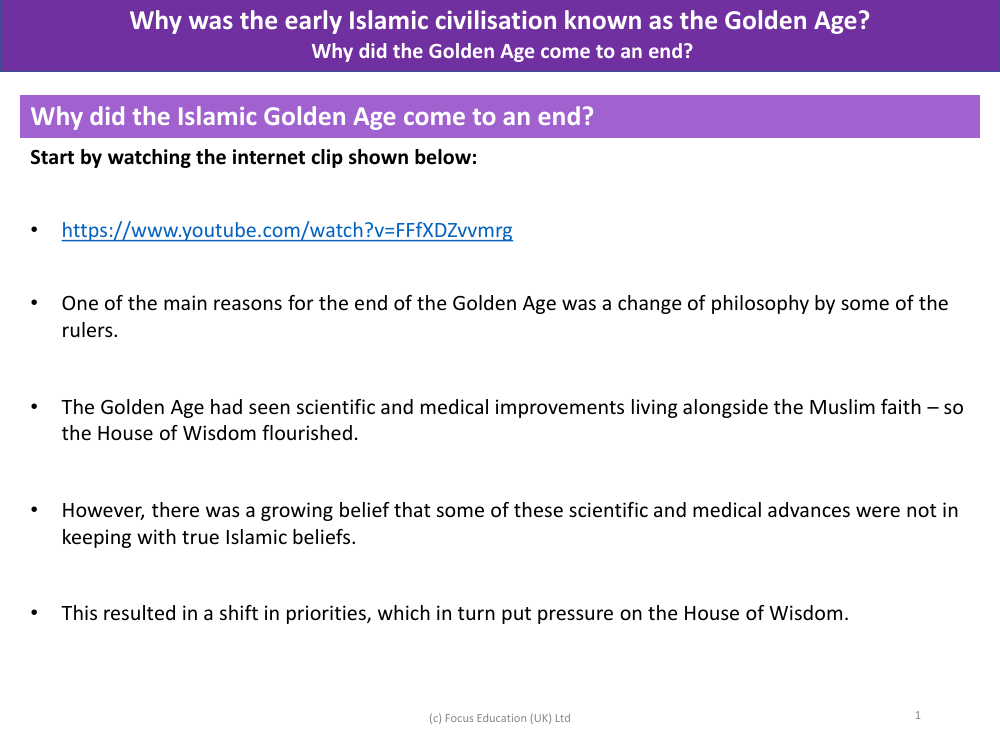Why did the Islamic Golden Age come to an end? - Info Pack - Year 5

History Resource Description
The termination of the Islamic Golden Age, a period renowned for its remarkable scientific and medical advancements, can be attributed to a combination of factors. Initially, this era thrived with the harmonious coexistence of progress in various fields and the Muslim faith, epitomized by the esteemed House of Wisdom. However, a pivotal change occurred when some rulers began to question the compatibility of these scientific and medical progresses with the core tenets of Islam. This philosophical shift led to altered priorities, placing strain on institutions like the House of Wisdom that had been central to the Golden Age's intellectual achievements.
Additionally, the Islamic civilisation faced significant external threats that contributed to the Golden Age's decline. By the early 15th century, military campaigns such as the Crusades in regions like Spain, Turkey, and Palestine, as well as the devastating Mongol invasion across Persia, Iraq, and Syria, posed dire challenges. The sacking of Baghdad in 1258 by Mongol forces resulted in the destruction of invaluable manuscripts, and in Cordoba, Spain, a vast majority of Islamic books were obliterated. The loss of critical territories, followed by the destructive forces of Timur, known as Tamerlane, further weakened the Muslim world. These catastrophic events signalled the onset of a decline in Islamic civilization, marking the end of an era that had been distinguished by classical Muslim scholarship.



